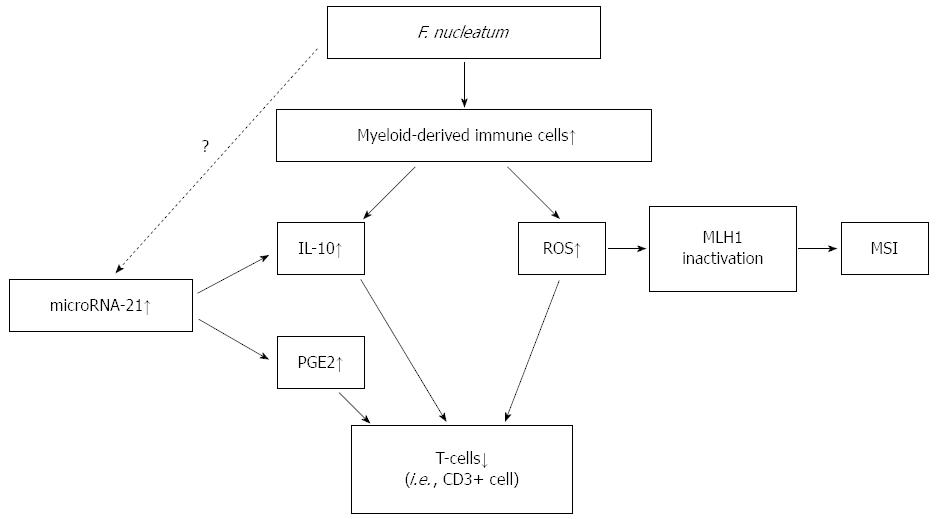Copyright
©The Author(s) 2016.
World J Gastroenterol. Jan 14, 2016; 22(2): 557-566
Published online Jan 14, 2016. doi: 10.3748/wjg.v22.i2.557
Published online Jan 14, 2016. doi: 10.3748/wjg.v22.i2.557
Figure 1 Hypothesis of potential mechanism about the association of Fusobacterium nucleatum in colorectal cancer with immune cells and molecular alterations.
F. nucleatum increases the production of ROS and inflammatory cytokines in colorectal cancer. Inflammation and ROS can cause epigenetic silencing of the mismatch repair protein MLH1 leading to MSI. F. nucleatum possesses immunosuppressive activities by inhibiting human T-cell responses and modulates tumor-immune microenvironment suppressively. MicroRNA-21 increases the levels of IL-10 and PGE2, which suppress antitumor T-cell-mediated adaptive immunity in the tumor microenvironment. F. nucleatum: Fusobacterium nucleatum; MSI: Microsatellite instability; PGE2: Prostaglandin E2; ROS: Reactive oxygen species.
- Citation: Nosho K, Sukawa Y, Adachi Y, Ito M, Mitsuhashi K, Kurihara H, Kanno S, Yamamoto I, Ishigami K, Igarashi H, Maruyama R, Imai K, Yamamoto H, Shinomura Y. Association of Fusobacterium nucleatum with immunity and molecular alterations in colorectal cancer. World J Gastroenterol 2016; 22(2): 557-566
- URL: https://www.wjgnet.com/1007-9327/full/v22/i2/557.htm
- DOI: https://dx.doi.org/10.3748/wjg.v22.i2.557









